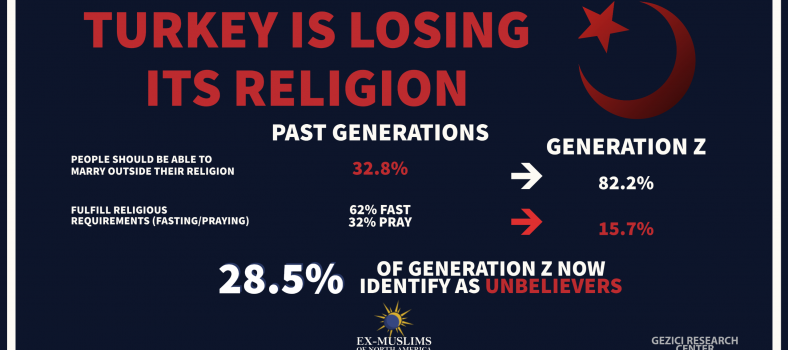Surah Nisa 34 (Q4:34) – Does the Quran condone domestic violence?
The author, Hassan Radwan identifies as an Agnostic Muslim and is the founder of the first Agnostic Muslims organization. You can read more about him and the work of Agnostic Muslims at http://agnoslims.com . His prior work includes founding CEMB (Council of Ex-Muslims of Britain).
Verse 34 of Surah al-Nisa. Does it mean you can hit your wife or not?
واضْرِبُوهُنَّ (4.34)
ٱلرِّجَالُ قَوَّٰمُونَ عَلَى ٱلنِّسَآءِ بِمَا فَضَّلَ ٱللَّهُ بَعْضَهُمْ عَلَىٰ بَعْضٍ وَبِمَآ أَنْفَقُواْ مِنْ أَمْوَٰلِهِمْ فَٱلصَّٰلِحَٰتُ قَٰنِتَٰتٌ حَٰفِظَٰتٌ لِّلْغَيْبِ بِمَا حَفِظَ ٱللَّهُ وَٱلَّٰتِي تَخَافُونَ نُشُوزَهُنَّ فَعِظُوهُنَّ وَٱهْجُرُوهُنَّ فِي ٱلْمَضَاجِعِ وَٱضْرِبُوهُنَّ فَإِنْ أَطَعْنَكُمْ فَلاَ تَبْغُواْ عَلَيْهِنَّ سَبِيلاً إِنَّ ٱللَّهَ كَانَ عَلِيّاً كَبِيراً
- Yusuf Ali: Men are the protectors and maintainers of women, because Allah has given the one more (strength) than the other, and because they support them from their means. Therefore the righteous women are devoutly obedient, and guard in (the husband’s) absence what Allah would have them guard. As to those women on whose part ye fear disloyalty and ill-conduct, admonish them (first), (Next), refuse to share their beds, (And last) beat them (lightly); but if they return to obedience, seek not against them Means (of annoyance): For Allah is Most High, great (above you all).
- Shakir: Men are the maintainers of women because Allah has made some of them to excel others and because they spend out of their property; the good women are therefore obedient, guarding the unseen as Allah has guarded; and (as to) those on whose part you fear desertion, admonish them, and leave them alone in the sleeping-places and beat them; then if they obey you, do not seek a way against them; surely Allah is High, Great.
- M. Pickthall: Men are in charge of women, because Allah hath made the one of them to excel the other, and because they spend of their property (for the support of women). So good women are the obedient, guarding in secret that which Allah hath guarded. As for those from whom ye fear rebellion, admonish them and banish them to beds apart, and scourge them. Then if they obey you, seek not a way against them. Lo! Allah is ever High, Exalted, Great.
The verb daraba ضرب means “To Hit” but can also have non-literal meanings, just like the word “Hit” in English can have non-literal meanings, (I hit upon an idea, Hit the road, Hit the sack, Hit it off, etc…)
There are examples in the Qur’an of daraba used in a non-literal/metaphorical sense such as to “Strike a similitude/parable”, “To keep away from”, “To go forth” etc… but in each case it is always made clear when it is used in a non-literal/metaphorical sense because of the use of qualifying particles such a preposition or explicitly stating it is a مثل = similitude/parable.
In the case of 4:34 there is no such qualifying particle or mention that it is a parable/similitude and so it can only means “Hit” and simply cannot have a figurative meaning like “Avoid them” “Set forth for them a parable” etc…
Here are some verses from the Qur’an where the verb daraba means “Hit”. I want you to notice how the verb takes its object directly and is not qualified by any preposition or word like parable/similitude etc… In each case it means “Hit”
يَضْرِبُونَ وُجُوهَهُمْ وَأَدْبَارَهُمْ “They hit their faces and their backs” (8.50)
ضَرْبَ الرِّقَابِ “Strike the necks” (47.4)
اضْرِبُوهُ “Hit it” (2.73)
Now in the next verses the verb daraba doesn’t mean Hit in a literal sense – but notice that it – and/or it’s object – are always qualified by a preposition and/or a word like مثل similitude/parable or في in the Earth/Land…
ضَرَبَ اللَّهُ مَثَلًا Allah strikes a parable (14:24)
ضَرْبًا فِي الْأَرْضِ “Going forth in the land” (2:273)
أَفَنَضْرِبُ عَنْكُمُ الذِّكْرَ صَفْحًا “Should we turn away the reminder from you?” (43.5)
ما ضربوه لك إلا جدلا “They do not set it forth for you save by way of disputation” (43:58)
أنزل من السماء ماء فسالت أودية بقدرها فاحتمل السيل زبدا رابيا ومما يوقدون عليه في النار ابتغاء حلية أو متاع زبد مثله كذلك يضرب الله الحق والباطل فأما الزبد فيذهب جفاء وأما ما ينفع الناس فيمكث في الأرض كذلك يضرب الله الأمثال
He sends down water from the skies, and the channels flow, each according to its measure: But the torrent bears away to foam that mounts up to the surface. Even so, from that (ore) which they heat in the fire, to make ornaments or utensils therewith, there is a scum likewise. Thus doth Allah (by parables) show forth Truth and Vanity. For the scum disappears like forth cast out; while that which is for the good of mankind remains on the earth. Thus doth Allah set forth parables. (13:17)
- If 4:34 meant “Leave them alone/Go away from them” it would have to have a preposition like عن (From/Away). So it would be واضربوا عنهن
- If 4:34 meant “Strike up a similitude for them” it would have to have a preposition like ل (to/for) and a qualifying word like “Parable” مثلا. So it would be: واضربوا لهن مثلا
- If 4:34 meant “and go forth in the land” it would have to have a preposition like في and a qualifying word like “Earth” الارض. So it would be: واضربوا في الارض
- If 4:34 meant “set forth for them by way of dispute” it would have to have a preposition like ل (to/for) and a qualifying word like “disputation” جدلا. So it would be:واضربوا لهن جدلا
Authors Note: In my opinion wadribuhunna from Qur’an 4:34 means “Hit them” and the Quran does indeed condone hitting ones wife in certain circumstances. It is a good example of why I believe the Qur’an is flawed and why some verses should be ignored




